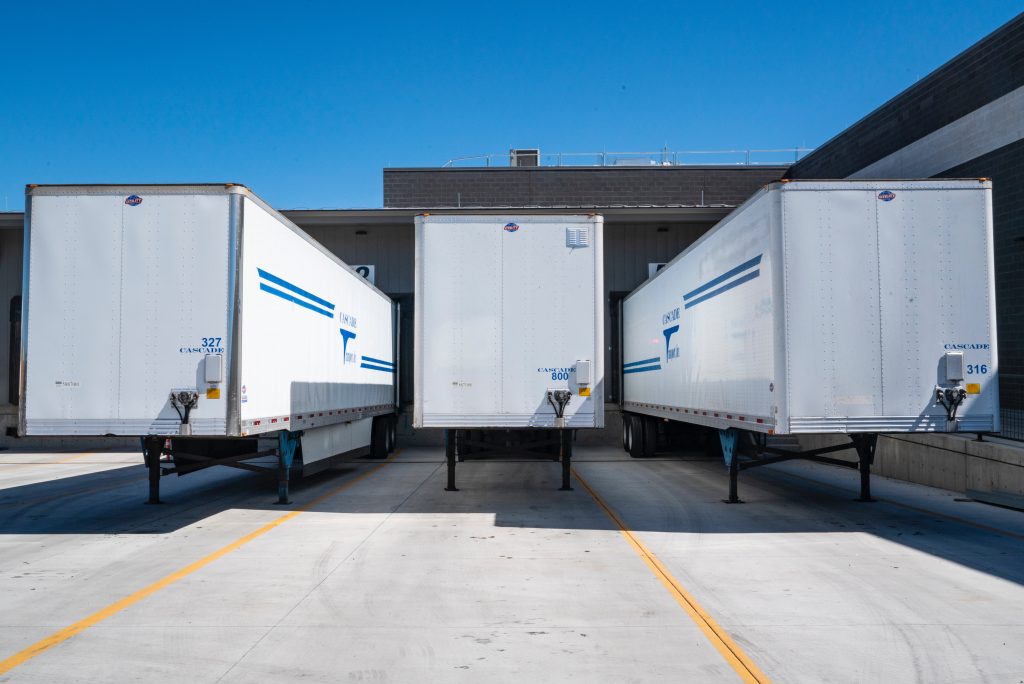Logistics managers play a key role in any functioning organization.
They are also known as supply chain managers and deal with the operational flow of goods through a business.
In the process, they have to identify new and more efficient methods of funneling them through an organization.
Their efforts impact profitability and customer satisfaction.
In the following article, we will explore the duties, skills, education, experience, and other things you need to know about the job.
Article Table of Contents
What Does a Logistics Manager Do
Logistics managers are responsible for the daily operation of supply chain logistics and the supervision of employees.
As a logistics manager, your responsibilities will include:
- Managing inventory.
- Hiring and training employees.
- Reporting to upper management.
- Coordinating staff schedules.
- Material handling.
- Improving the efficiency of the company’s supply chain.
- Resolving customer service issues.
- Negotiating costs.
The role in this position is managerial, but they also plan and implement a lot of details.
Generally, logistics managers work in warehouses, and their hours can be odd.
It is common for them to work over 40 hours a week, but they have a high median salary and are highly valued in an organization.

Responsibilities
The following list doesn’t include all the responsibilities that logistics managers may face, but it lists some of the common and universal duties of this profession.
- Oversee the distribution, movement, storage of inventory and materials.
- Resolve inventory arrival complaints and customer service disputes.
- Hire, manage, and train warehouse employees.
- Coordinate the schedule and time cards of the staff.
- Negotiate supplier and shipment costs.
- Monitor workplace safety standards and ensure they are being followed.
- Manage logistics processes budgets.
- Develop cost-reducing strategies and improvements for efficiency.
Essential Skills
To succeed in the logistics field, managers need to have the following skills:
Organizational:
Logistics managers should be extremely detail-oriented and organized.
They are responsible for overseeing the supply of the entire chain.
They should be able to identify and correct any errors.
Interpersonal:
Logistics managers need good interpersonal skills to deal with customers and employees.
They are responsible for the timely delivery of services and goods to customers.
So, they should be able to inspire their workers to be diligent and efficient.
Logistics managers should also handle customer complaints with ease and grace.
Negotiating:
The supply chain process includes a great deal of negotiation.
Logistics managers should keep the process on the budget to increase profitability.
They are trying to increase margins, so they can negotiate with suppliers efficiently.
Verbal and written communication skills:
Logistics managers deal with the creation and presentation of reports to the upper management of the company.
For that, they need excellent verbal and written communication skills.
They should be able to present information logically.
Problem-solving:
Problem-solving skills are significant as well.
Something on the supply chain can fail, and logistics managers should be able to find alternative solutions.
They need the ability to evaluate the situation critically and resolve the disputes timely.
How to Become a Logistics Manager
Typically, logistics managers need a bachelor’s degree and some on-the-job training.
There are some requirements for education, experience, and training the logistics manager needs to meet, which we listed below.
Training and Qualifications
Logistics managers usually need a Bachelor’s Degree in business administration, supply chain management, or economics.
These courses provide a good understanding of management practices and business.
Most of them also need certification in Lean Six Sigma program.
It can be challenging but very helpful.
This program focuses on practices that maximize efficiency and eliminate waste.
Experience
Logistics managers usually need some on-the-job training.
If you have experience in the field, it’s easier to land a job in logistics planning.
For instance, with experience in computer and electrical engineering, an engineer can transition to the position of logistics manager in an electrical manufacturing company.
They won’t have to learn as much since they are already familiar with the processes and language for the position.
You can still get a job with just a general background in business, but the experience in the industry is an advantage.
Working Hours
Logistics managers usually work 40 hours per week, and sometimes, overtime may be required.
Sometimes they have to work odd hours because shipments can be received or shipped at various times.
Besides, some of them may be on-call.
The work environment can be stressful and fast-paced.
Logistics managers have a lot of responsibility since their decisions impact the profitability of the company.
Typically, they work in an office inside a warehouse where the inventory is stored.
Career Outlook
This field offers a wide range of advancement opportunities.
Logistics managers can become professors or teachers on the subject.
Successful professionals can take an entrepreneurial route and provide consultations in the industry.
Conclusion
A career as a logistics manager is rewarding and challenging.
These professionals are in high demand.
For detail-oriented and business-savvy people, this career can be a great choice.
